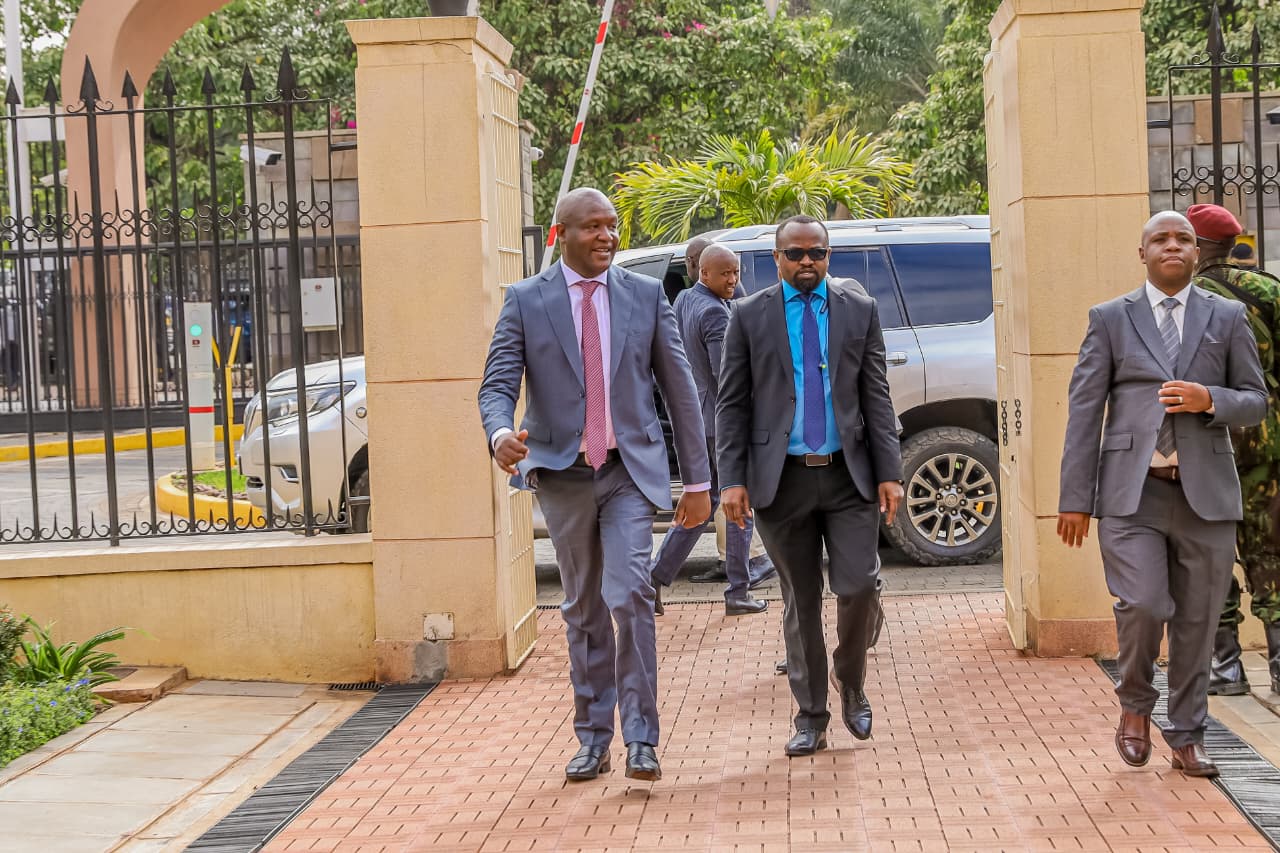Governor Mutai pleads not guilty to abuse of office, misconduct allegations

The Senate trial opened with the reading of the charges by Senate Clerk Jeremiah Nyegenye, who confirmed the allegations submitted by the County Assembly.
Kericho Governor Eric Mutai has denied three serious charges brought against him, as the Senate officially began hearings into his impeachment on Wednesday, August 27.
The charges — gross violation of the Constitution and the law, abuse of office, and gross misconduct — were filed by the Kericho County Assembly, which impeached the governor on August 15.
The Senate trial opened with the reading of the charges by Senate Clerk Jeremiah Nyegenye, who confirmed the allegations submitted by the County Assembly.
The trial will run for three days, ending on Friday, August 29, when the Senate is expected to vote on whether to remove Mutai from office.
One of the main charges accuses Mutai of authorizing fake payments for overpriced or undelivered goods and services totaling over Sh 85 million.
He is also said to have misused Sh 351 million from the National Agricultural Value Chain Development Project (NAVCDP).
Additionally, the Assembly claims that he favored Chemosot Ward when allocating FLOCCA funds, an action they say undermined fairness in public resource distribution.
Further, the County Assembly accuses the governor of diverting funds meant for Strategic Intervention Projects, mishandling money intended to help victims of the Londiani road accident, and misappropriating Sh 39 million from the “Equalizer Kazi Mtaani” initiative.
On the abuse of office charge, the governor is alleged to have made illegal appointments that included placing his brother and his personal assistant’s wife into county government positions.
He also reportedly confirmed an irregular appointment of a County Attorney, an action already nullified by a court decision.
Other accusations include publishing political hiring adverts without proper budgetary approval, unfairly transferring and firing senior county staff, and attempting to control how and when the County Assembly conducted its oversight duties.
On gross misconduct, Mutai is accused of leading a mob onto private land and declaring it a dumpsite despite an existing court order blocking that move.
The Assembly claims he intimidated employees, unfairly dismissed others, and created a toxic work environment by using divisive language not fitting of his office, allegedly breaching Chapter Six of the Constitution.
In response, Mutai appeared before the Senate with a six-member legal team led by Senior Counsel Katwa Kigen, who once defended President William Ruto at the International Criminal Court.
Other lawyers on his team are Peter Wanyama, Rose Wanjiru Thiong’o, Doris Ng’eno, Joash Mitei, and Evanson Kirui.
His defence team has filed three preliminary objections, stating that the entire impeachment process was unconstitutional and ignored a High Court order that had stopped any debate or vote on the matter until a scheduled inter partes hearing on August 28.
The lawyers also questioned the transparency of the electronic voting system used by Members of the County Assembly, saying it lacked proper accountability.
Senate Speaker Amason Kingi confirmed the matter would proceed under Article 181 of the Constitution, Section 33 of the County Governments Act, and Senate Standing Orders.
The first day of the proceedings was used to read out the charges and receive the governor’s plea.
Thursday’s session will be for the presentation of evidence, witness cross-examinations, and questioning by Senators, with each side given up to five hours.
The final day will be reserved for closing arguments before Senators debate and vote on the matter. The vote will be conducted by county delegations as required by Article 123 of the Constitution.
If a majority supports even one of the charges, Mutai will immediately lose his position as governor. If none of the charges are upheld, Speaker Kingi will inform the Kericho County Assembly that the governor remains in office.
The motion to impeach Governor Mutai was moved by Sigowet Ward Representative Kiprotich Rogony.
Representing the County Assembly is a legal team led by lawyer Elisha Ongoya, assisted by Evans Kiplangat, Elvis Kipkorir, Joel Wakhungu, and Vincent Kipronoh.
They argue that Mutai’s actions consistently violated the Constitution, the Public Procurement and Asset Disposal Act, and several other public laws.
